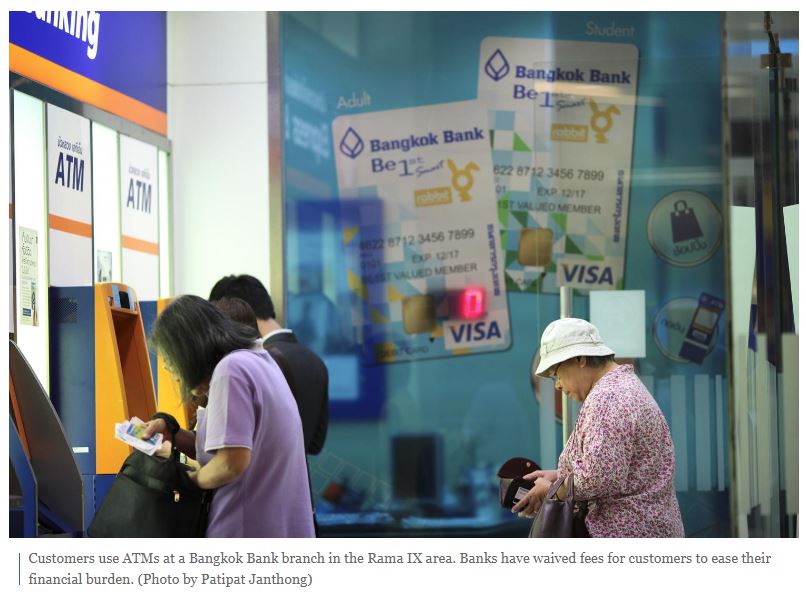Bank of Thailand readies rejig of fees
The Bank of Thailand plans to implement practice guidelines to regulate financial institutions’ fee charge calculation for products and services in the third quarter as part of a push for a fairer fee structure, a senior official says.
The guidance will cover fee charges for 300 items across business segments including corporate, small and medium-sized enterprises (SMEs) and retail banking business, said Thanyanit Niyomkarn, the central bank’s assistant governor for the supervision group.
The guidance is in line with a recent adjustment of fees for three items — early payoff penalties, debt default and replaced ATM and debit cards — as the central bank demanded earlier, she said.
The regulator requires financial institutions to adjust prepayment charges for SME and personal loans, and late-payment fees for SMEs, personal and mortgage loans, based on actual costs. Replacement fees for ATM and debit cards and codes are also waived, effective from last month. The move is aimed at setting a fairer fee rate to better reflect actual costs, reducing affordability risk and alleviating financial burden for consumers and SMEs.
“Typically, fee structure adjustment would affect fee-based income of financial institutions,” Mrs Thanyanit said. “On the other hand, it would be fairer to consumers and small business operators, and it would also standardise the overall banking business.”
Apiphan Charoenanusorn, co-president of Siam Commercial Bank (SCB), said the central bank’s across-the-board fee structure adjustment will hit the bank’s fee-based income, but it needs to wait for clear-cut guidance to estimate the actual impact.
The central bank’s recent demand to adjust fee charges for the three items is having an insignificant impact on SCB’s overall fee-based income because the bank has charged such fees in line with the central bank’s requirement for a while, Mrs Apiphan said.
Kiatnakin Bank president Philip Chen Chong Tan said the central bank’s impending fee structure guidelines will not have a major effect on KKP because it is small and it is ready to comply with the central bank’s regulations.
Default and prepayment penalty fees account for a minimal portion of the bank’s total fee-based income, and such income does not derive from business operations, he said, adding that the bank encourages customers to make debt payments on the due date to control both asset quality and financial expenses on loan-loss provisions.
The bank has waived fees for customers to ease their financial burden amid the sagging economy as required by the central bank.
KKP also provides financial assistance to clients to help them overcome the difficulty as normal practice to strengthen its relationship with customers.
Source: https://www.bangkokpost.com/business/1854969/bank-of-thailand-readies-rejig-of-fees


 English
English




